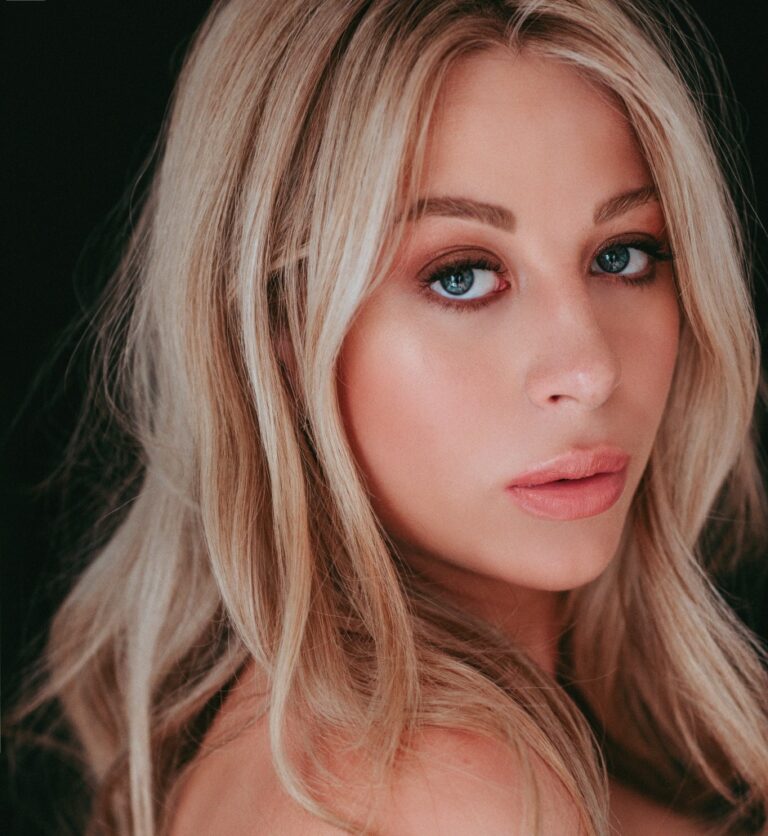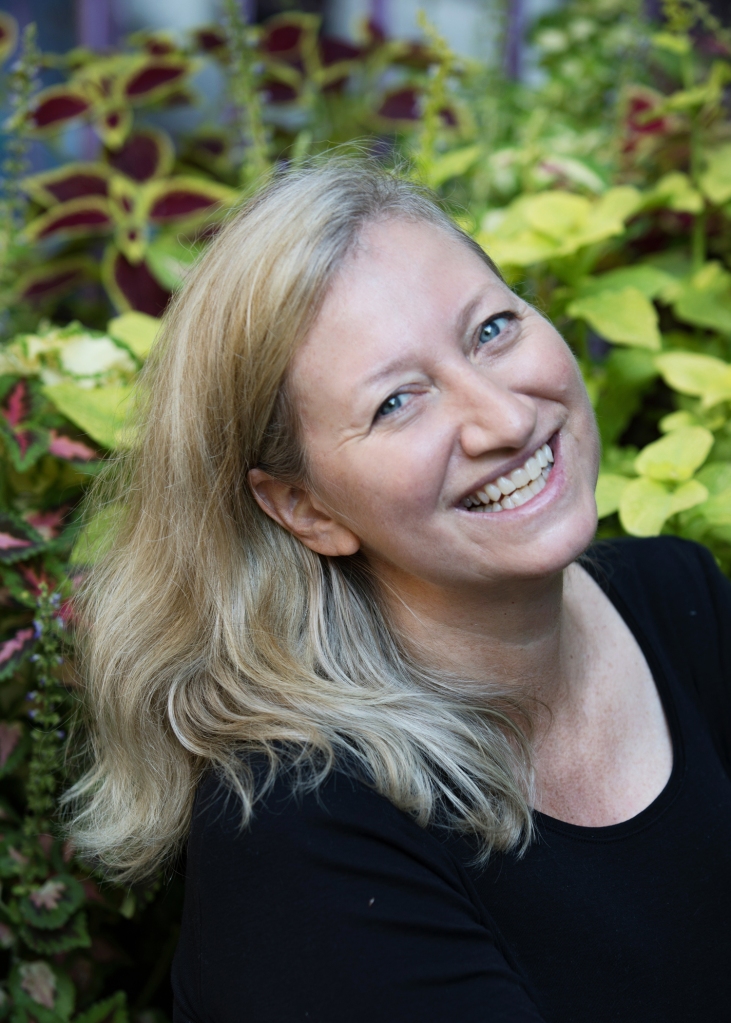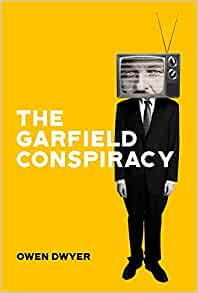‘You walked into me,’ he said, his tone calm and matter-of-fact.
More than once he had seen Elise’s eyes flick up to the mirror. Seen her looking at the empty back seat across from Sofia.He suspected Karine had been helping Elise with other things too. There was usually wine or a stiff G&T involved in these late-evening Skype calls. And a week or so ago, when he’d gone into the study to take Elise her usual cup of green tea, he could tell she’d been crying. He hadn’t said anything. If Elise could open up to Karine Helgeland, well, that was good, wasn’t it?Sofia stopped dead. She stood with her back to him for a moment as if she had known she would be challenged. Then she turned around. ‘I’m just exploring,’ she shouted, lifting a gloved hand in which Erik knew would be the pocket knife she had so desperately wanted for Christmas. A Victorinox Huntsman multitool with fifteen functions, it had been the only thing she had asked for, but Erik’s toes crunched up in his shoes every time he saw her opening and closing the sharp blades and gadgets.‘Shit,’ he said. It was only the first day and already Sofia was sulking with him and Elise was pissed off. So much for the cosy family trip to the mountains. ‘Shit,’ he said again, thrusting his shovel into the snow and hurling a wedge of it over the side of the roof. And I’m hiding up here on the damn roof, he thought, like that’s going to help anything.Because he and Sofia are not the old couple’s only visitors that night – and soon he and his daughter will be running for their lives . . .He shook off the man’s gaze, cradled the bag in one arm and bent to pick up a pack of minced beef.Her employer, Friends of the Earth Norway, couldn’t have been more understanding. They had welcomed Elise back to work, had orchestrated this posting to ease her back into the job. And hadn’t Erik himself suggested they rent a cottage away from everything and everyone? Fresh air. Ski trips. The Northern Lights.
‘Where are you going?’ he asked.
It had been a game once, with Sofia’s sister. He’d glance at Emilie but she’d look away immediately. Was Sofia remembering now too as she watched the snow-laden pines and the dirt-blackened drifts whir by? He knew she was.
‘There must be something going on today,’ Elise said, breaking into his thoughts. They were coming into town already.
Then, far from home in this snowbound wilderness, with night falling and the mercury plummeting, an accident sends them in search of help – and shelter. Nearby is the home of a couple – members of Norway’s indigenous Sami people – who they’ve met before, and who welcome them in. Erik is relieved. He believes the worst is over. He thinks that Sofia is now safe. He could not be more wrong.
‘And who is this?’ Lars asked, stepping back and holding his arms out towards Sofia. ‘A young adventurer coming all the way up here to see how we mountain-trolls live?’
Karine gave Elise an impressed glance, then turned her bright eyes back to Sofia. ‘But today is a day to be proud of our heritage and to speak up for the land, which cannot speak for itself,’ she said. Then, to lighten the tone, she took off her hat and leant towards Sofia. ‘Although, to be honest with you, this can get very itchy.’ She scrubbed her short brown hair with thick fingers, then straightened and put a hand on Elise’s shoulder. ‘We are so grateful to have Elise here,’ she said, raising her voice above the loudspeaker a metre or so away. ‘Together we must make sure that the land is protected.’ She and Elise shared a look of solidarity and determination.
‘I see her, Lillemor,’ he said.
His daughter followed, head to the ground, fists clenched. A moment later, he felt the vibration of the door slamming shut below his feet and was surprised it hadn’t cleared the snow off the roof and him along with it.
It had been snowing on and off for three days, the ploughs shaping canyons of cleared snow along the roads while people slept. He had lain awake listening to them, welcoming the interruption of the deathlike stillness of the night. Now the only snow on the roads was whipped by the wind across the black asphalt in ghostly swirls before the headlights.
‘I apologize,’ the tall man said, gesturing at his white-haired companion, who seemed pissed off at being dismissed out of hand. ‘My brother is . . . clumsy. And his manners could do with some work.’
He knew that Elise had been chatting online with this local Sami campaigner, been kept up to date about the mining company which had bought land and an old copper mine around here somewhere.
This story of survival captured Giles’s imagination, but it was becoming a father that really inspired him to find the beating heart of Where Blood Runs Cold. To delve into a parent’s fears for their children, to face up to their own mortality, and to provoke the reader to ask themselves the question, How far would I go?
A story of endurance and of the desperate, instinctive will to survive, of a father’s love for his child, of knowing when to let go – and of a daughter’s determination to prove herself worthy of that love, Where Blood Runs Cold is a pulse-racing thriller from a master storyteller.
‘Come on, Lillemor,’ he said.
Even as he looked back to the road, he knew that Sofia had sensed his glance, and so he looked to the mirror again and this time their eyes met. Just for a second, then she turned her face back to the window, her gaze fixed on an old red timber farm and outbuildings that passed in a snowy blur.
Too late for that. Erik held his eye and straightened up. He knew he was being challenged. Also knew it would be a mistake to turn his back on this man.
The whole idea of coming out to the Lyngen Alps was to escape the last ten months. Not to forget – who could forget? – but to feel something else. To breathe again. And they needed it. So Elise had told him over and over, and no doubt she was right. She usually was.
‘But you’ve just arrived after a long journey,’ Karine continued. ‘You’ll want to be settling in up there,’ she added, looking up at the snow-covered mountains to the west of the town. ‘Why don’t you come for dinner Saturday night?’ She turned her head, fixing her dark eyes on Erik. ‘If you don’t already have plans.’
‘A heart-pounding survival thriller set in the starkly beautiful far north of Norway. Gripping and adrenalin-fuelled, yet also written with a tenderness that warms even the most chilling of chases.’ Lucy Clarke, author of The Castaways.
Erik had already turned away, but he lifted a hand in farewell. Then, through a gap in the crowd, he caught sight of the tall scarred man who had helped him pick up the shopping. Their eyes met and the man nodded cordially, then Erik turned to Sofia.
It was in stillness that his mind beat madly, like a bird trapped in a room, hurling itself against the window glass.
‘Let’s find Mamma,’ he said, squeezing Sofia’s hand, and together they continued through the crowd until they reached his wife, who was standing with the other woman.
‘Ah, so! I’m glad to meet you, Sofia.’
Sofia glanced at her mamma for reassurance. ‘I’m Sofia,’ she said, looking back to Lars Helgeland.
ABOUT THE AUTHOR
The same spell that held him too.
Elise gave a slight shake of her head, then turned, dropped her shovel onto the snow beside the path she’d been clearing and set off towards the porch.
‘You couldn’t see over your shopping bag,’ the man said. Russian, at a guess. Wiry and young. Short peroxide blond hair and noisy cobalt blue eyes. A restless face out to prove something. The kind of face any father should probably pretend he hadn’t seen.
Elise would be right in the thick of it. This wasn’t the biggest of battles that she and Friends of the Earth were fighting on behalf of the natural world and its myriad species. But better that Elise was here, rather than eight hundred kilometres away, lobbying against the transportation of used nuclear fuel from the Gulf of Finland to Siberia, like her last job. Better that they were together.
‘We’re doing what we can,’ she said. She looked to be in her late fifties, and though an outdoor life had weathered her face, giving her a stern air, her eyes still held a youthful mischief.
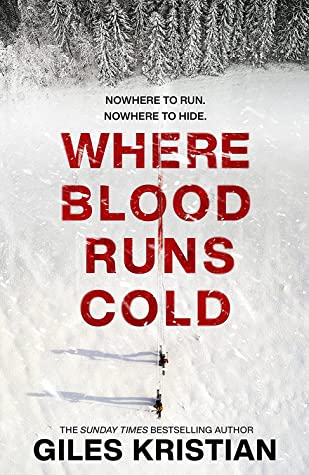
He said nothing, then twisted around to give Sofia a smile which felt like a stranger on his face. ‘Let’s get some supplies. Some chocolate?’
Over nine weeks, Jan Baalsrud would endure hardships almost beyond imagining. His feet would freeze solid, he would be buried up to his neck by an avalanche. Snowblind and frostbitten, he would wander lost in a snowstorm for three days, become entombed in snow for four days and be left abandoned for two weeks. To prevent the spread of gangrene, he used a knife to cut off several of his frostbitten toes. Eventually, he would lie tied to a stretcher, near death, as teams of Norwegian villagers dragged him up and down snow-covered mountains. Despite all this, he somehow endured. Jan Baalsrud survived what would surely have killed anyone else. The man simply refused to die.
In the morning, after four cups of coffee to offset another night’s broken, haunted sleep, he dug out two snow shovels from the shed. He and Elise set to work clearing a path from the car to the cabin door, where the plough had not reached.
The man smiled. As he stood, Erik noticed a pale scar running through his lips onto his chin. He was tall. Six-two, six-three. Lean face. Eyes as fixed and steady as the other man’s were unmoored and adrift.
The drive from Tromsø had been easy enough. Two and a half hours, including a toilet and snack stop, and the thirty- minute Ullsfjord ferry crossing from Breivikeidet to Svensby. On the near-silent crossing, he had lost himself gazing at the summits and upper slopes of the snow-cloaked mountains cast in the pink blush of dawn. The sky the infinite blue of azurite copper ore, the water before the bow of the ferry still black, fathomless and indifferent, a dark mirror between worlds.
‘Where are you going?’ Erik called down to her.
‘The demonstration.’ Elise was peering at a throng of people a hundred metres ahead, gathered before a makeshift stage in the small town square. ‘Karine told me about it, but I forgot it was today.’
‘What if she promises not to go far?’ Elise said, looking at the sky and then at her watch. He guessed it was around midday. ‘It’ll be light for another two hours,’ Elise said. ‘It’s a shame if she can’t make the most of it.’
‘And I’m telling you I want you to stay here where we can see you,’ he shouted.
Erik glanced at the man, who shrugged inside his coat, huffed warm air into his busy hands and dipped his head in some sort of acknowledgement-cum-apology which he didn’t mean. Erik nodded to the tall man again, wrapped his left arm around the shopping bag and held out his other hand to Sofia, who took it tightly.
Sofia’s smile was her answer, as she plucked her woollen hat from amongst the clutter of bags and Amdahl family belongings and pulled it onto her head.
Elise stood to the side of the stage, looking up at a larger woman who was making her way down the rickety metal steps towards her, smiling and waving at Elise as though they were old friends.
Erik nodded in thanks.
‘Who’s Karine?’ he asked, anticipating the eye roll that followed.
Before he could answer, Karine turned away to greet a handsome man with silver hair rattling the stairs of the platform as he descended towards them. A warm smile spread across his sun-browned and wind-beaten face.
‘Pappa,’ Sofia said again. More urgently this time. Fear in her voice.
During the 90s Giles Kristian was lead singer of pop group Upside Down, achieving four top twenty hit records, performing on Top of the Pops as well as at the Royal Albert Hall, N.E.C. and Wembley Arena, and supporting artists including The Spice Girls, Take That, Eric Clapton and U2. As a singer-songwriter he lived and toured for two years in Europe and has made music videos all over the world, from Prague, Miami, Mexico and the Swiss Alps, to Bognor Regis! To fund his writing habit, he has worked as a model, appearing in TV commercials and ads for Walls Ice Cream (he was Magnum Man!), Canon Cameras and two brands of lager. He has worked as an advertising copywriter and lived for three years in New York, where he wrote copy for movie marketing company Empire Design but mainly worked on his first novel, RAVEN: Blood Eye.
The sat nav said they’d be arriving in sixteen minutes. They would fill the boot with supplies, then head up to the cabin. Elise was determined that they would sit down and eat together before bed. Comfy clothes. Candles. He would get a fire going. Some music. A cosy family dinner. The first night in the mountains. The start of something new.
‘A terrific winter chiller set in the unforgiving Norwegian mountain landscape, Where Blood Runs Cold depicts exactly how far we will go to survive – and to protect the ones we love. Utterly gripping.’ Amy MCulloch, author of Breathless.
‘Stay close,’ he called to Sofia behind him as he forced a way through the crowd, his arms wrapped around the bag of groceries.
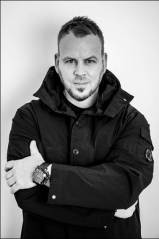
‘We look forward to it,’ Elise said, smiling. ‘Message me with the time and if there’s anything we can bring. We’ll see you Saturday.’
It was two-fifteen and already growing dark when Elise turned the key in the door and pulled it open. The smell of the pinewood interior took Erik back to a hundred vacations boy and man, by fjord and mountain. Lamps were switched on, candles were lit, and he set a fire in the Jøtul wood-burning stove in the lounge, while Elise made filter coffee and Sofia introduced herself to her bedroom. He had cleaned the soot from the glass of the stove before making the fire, and now leaned forward watching the flames, their tentative questing, then growing hunger as they fed on the kindling and licked at the seasoned birch, whose leprous white bark caught like paper. The cold sits in the walls, his grandmother used to say. Only now did he truly know what she had meant. Soon, the fire was softly roaring, tongues of flame caressing the glass, and the iron stove started to ping and tick as the metal expanded with the heat. It was a ritual, this waking up the cabin. Saying to the place, we’ll get to know each other, but for now just know that you are ours and we are yours.
If Giles’s own experience skiing in Norway fired his imagination, it was a famous story of survival in the Norwegian mountains that added fuel to this fire and inspired Where Blood Runs Cold.
Publisher: Bantam Press/Transworld
Format: Ebook, Audio, Hardback (24 February 2022) | Paperback (24 November 2022)
Pages: 336
INSPIRATION FOR THE NOVEL
‘I see her, Pappa,’ Sofia said, pointing.
He pulled himself up onto the roof, then took two tentative steps to retrieve the shovel he’d already thrown up there. He could hear the thrust and cut of Elise’s scoop as she resumed her own work, and was just trying to guess where the roof ended and the overhang began, when he caught movement from the corner of his eye and looked up. Dressed in her Helly Hansen gear and snowshoes as if ready to join one of Amundsen’s polar expeditions, Sofia was setting off up the slope towards the pine woods behind the cabin.
The audio speakers on the stage squealed. ‘We must protect what is ours,’ the Sami protestor said. ‘Doing nothing would be a betrayal of our ancestors, our children and our children’s children.’
Operation Martin involved a team of expatriate Norwegian commandos who sailed from the Shetland Islands back into Nazi-occupied Norway in March 1943. Their aim to destroy a German airfield control tower at Bardufoss, and recruit for the Norwegian resistance movement. However, the men were betrayed and ambushed, their boat sunk by the Germans. Three were killed. One escaped. The one that got away was Jan Baalsrud. Soaking wet and missing a boot, he escaped and what followed has to be one of the most remarkable survival stories of all time.
He dipped his head. ‘You must be what, fifteen? Sixteen?’ ‘Almost thirteen,’ she told Lars.
‘And this must be Sofia.’ Karine stepped back to examine Sofia, who said a shy hello. ‘I’ve heard all about you,’ the older woman said, nodding in approval.
Lars nodded to Elise and shook Erik’s hand firmly.
He felt a calm which had evaded him these past ten months. A settling in his stomach and in his heart. But no sooner had he acknowledged this welcome change than the memory of the scream came back to him. The twisting in his gut as he watched. The lurch forward, far, far too late. He shook his head hard to dislodge the vision, swallowed back the bile that had risen to burn his throat, shoved himself out of the chair and headed outside to fetch more logs for the fire.
My thanks to Fiona of Midas PR for the tour invitation and for providing the extract.
Fuck. Really? Erik thought. He put the bag down on the slush and ice and stood to face the man. Fought to subdue the adrenaline rushing through him.
‘Never thought it would be so busy,’ he said, leaning forward over the steering wheel, searching for somewhere to park.
‘Karine has been helping me prepare for the investigation into Novotroitsk Nickel,’ Elise told Erik. She glanced at Karine. ‘I don’t know what I would’ve done without her.’
Erik lifted his eyes to the rear-view mirror. Sofia was holding a finger against the window, tracing the staccato movement of a snowflake as it melted and journeyed across the glass, leaving something of itself in its wake until it was gone.
‘This is my husband, Lars,’ Karine said. ‘Lars, this is Elise Amdahl and her husband Erik.’
Down came the shovel. Off flew the snow. He lost himself in the task. Truth was, he enjoyed the repetitive drudgery of it, the heat blooming in his arms and lower back. The rhythm of his breath and the pulsing of blood in his ears. Peace in movement.
Erik headed forward again, then stopped dead. A man had stepped hard and fast into his path, face to face, so that some of the shopping spilled out onto the filthy snow between booted feet in the crowd.
The protestors, some in the bright blues and reds of traditional Sami dress, thronged around one of their number who stood at a microphone, addressing the crowd. Her words were clear, even through the screech and squeal of the low-rent PA system. Novotroitsk Nickel would reopen the old copper mine, she said, and destroy more of the ancient reindeer grazing land. This corporation’s greed was yet ‘another assault on the fragile Arctic environment.’
‘Watch where you’re going,’ the man said, glaring down at him.
‘Pappa!’ Sofia said, trying to look crosser than she was at his use of her pet name. Little mother. He suspected she still quite liked it now and then.
‘You’ve got a few days off before you start work, though, right?’ he said when they were parked up. His tone had sounded more confrontational than he’d intended.
‘But, Pappa, I just want to look around,’ she called back.
Karine smiled at her. ‘I usually only wear it on Sami National Day—’ ‘The sixth of February,’ Sofia interrupted.
‘Erik, this is Karine,’ Elise said, smiling at her friend.
‘Somebody has to make lunch,’ she said, disappearing from view.
‘Keep up, Sofia,’ he said, pushing his way to the front of the crowd. A group of men and women stood holding signs saying things like: SAY NO TO NOVOTROITSK NICKEL and WHAT HAPPENS IN THE ARCTIC DOESN’T STAY IN THE ARCTIC. One sign in particular caught Erik’s eye. It bore a photo of a Sami herder and a reindeer below the words WHERE WILL WE GO NOW?
‘Isn’t Mrs Helgeland’s kofte beautiful, Sofia?’ Elise gestured at Karine’s traditional felt dress with its ribbons of contrasting colours, its pewter embroidery and her red wool bonnet.
Now and then they passed other vehicles on the road – the 4x4s of other cabin owners, most with a Thule ski box on the roof like their own, or the occasional yellow plough with flashing lights, creating its own blizzard as it hurled snow into drifts either side of the road. Three thousand kroner a year would see one of these keep the track to your cabin open.
Elise turned to him, frowning. ‘I told you, we’ll have the week’s holiday before I start.’
‘No, Sofia, I want you to stay here,’ he said, gesturing with the shovel.
‘Allow me,’ came a voice. Another man from the crowd dropped into a squat beside them, picking up a can of beer that had broken free of the pack. He swept the dirty water off the can and Erik saw a tattoo on the back of his hand. A wolf’s snarling face beneath a parachute. Wings, or maybe fire, on either side. ‘I prefer Ringnes myself,’ he continued. The same accent as the other man. ‘An Oslo beer but owned by the Danes. Like Norway used to be.’ He handed Erik the can. Erik placed it back in the bag with the other items, and the two of them drew themselves up to full height.
EXTRACT
‘Please don’t fall,’ Elise shouted to him as he reached the top of the ladder and prepared to haul himself onto the roof. Her needless warning struck him like a blow to the chest. For a moment he held tight to the ladder, not wanting to look down at Elise. Knowing she would be inwardly cringing at her own words.
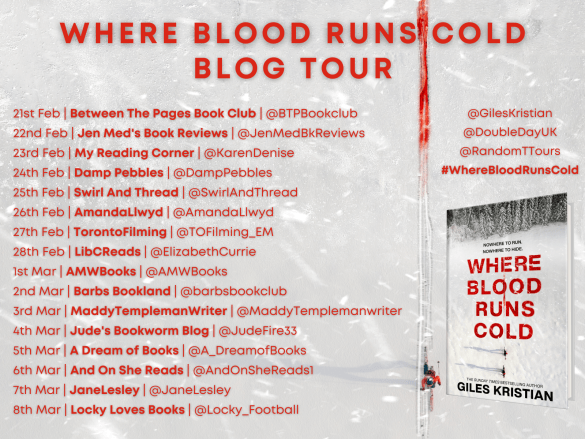
He glanced up at the rear-view mirror. Sofia was staring out of the window. He needed to get out. The car was full of tension. Most of it his own.
Sofia helped out for a while, emptying last night’s ashes from the stove, filling the log basket from the pile under the eaves which someone had restocked at the end of last winter, and bringing the skis and snowshoes from the roof box on the car to the porch. She arranged them neatly, a set between each of the pegs on the wall of the porch. After that, she disappeared inside, while he carried a ladder from the shed along the path which Elise was still busy clearing with the scoop. He’d decided to clear at least half the snow off the roof before lunch.
Sweeping her hat off and rubbing her own hands together in the warm air from the AC vent, Elise smiled at him in a way he realized he’d been missing. They continued along the twisting track climbing up into the mountains, towards Jiekkevárri, at nearly two thousand metres the highest peak in Troms county. Past half-hidden shacks and winter cabins built forty years ago, between fields dense with snow and tall spruce bent and burdened with it, as though cursed by some spell and frozen in time. The Mitsubishi’s gasoline engine purring now, generating power for the electric motors. The chains rattling on the wheels, biting into the deep snow. They came like pilgrims from the new world seeking to make their sacrifice to the old.
Giles, who is half-Norwegian, was inspired by his family history to write his first historical novels: the acclaimed and bestselling RAVEN Viking trilogy – Blood Eye, Sons of Thunder and Odin’s Wolves. For his next series, he drew on a long-held fascination with the English Civil War to chart the fortunes of a family divided by this brutal conflict in The Bleeding Land and Brothers’ Fury. Giles also co-wrote Wilbur Smith’s No.1 bestseller, Golden Lion. In The Rise of Sigurd novels – God of Vengeance, Winter’s Fire, and Wings of the Storm – he returned to the world of the Vikings to tell the story of Sigurd and his celebrated fictional fellowship. His Sunday Times bestseller, Lancelot, is currently in development for TV with a major studio. His latest novel, Camelot, is out now in paperback.
‘No,’ he said, more forcefully than he’d intended.
Erik shook his head and stooped again. ‘Help me, Lillemor,’ he said, and Sofia bent and gathered up a couple of tins and put them in the bag.
Sofia nodded. Karine and Elise shared a smile. ‘The Amdahls are coming for dinner on Saturday,’ Karine told Lars, who raised his eyebrows, as surprised as Erik at how fast this had happened.
‘Karine Helgeland,’ Elise said. ‘She did say I should come to the protest if we arrived in time.’
Erik Amdahl and his spirited daughter, Sofia, have embarked on a long-promised cross-country ski trip deep into Norway’s arctic circle. For Erik, it’s the chance to bond properly with his remaining daughter following a tragic accident. For Sofia, it’s the proof she needs that her father does care.

And beneath the swirling light show of the Northern Lights, a desperate fight ensues – of man against man, of man against nature – a fight for survival that plays out across the snow and ice.
‘Pleased to meet you, Karine,’ he said, letting go of Sofia to shake Karine’s hand, then wrapping his arm around the shopping.
‘Pappa,’ Sofia said.
Sofia loved the drive up to the cabin, especially when they left the roads cleared by the ploughs and had to fit the snow chains. He let her help him attach the levers and clips. It added a half-hour to the journey but it was worth it to see her face when she got back in the car, huffing into cupped hands, cheeks red from the cold.
‘There, Pappa!’ Sofia pointed again as she squeezed between a knot of phone-zombie teenagers, and caught up with him. AUTHOR LINKS:

